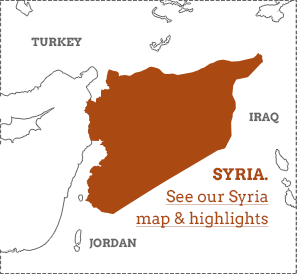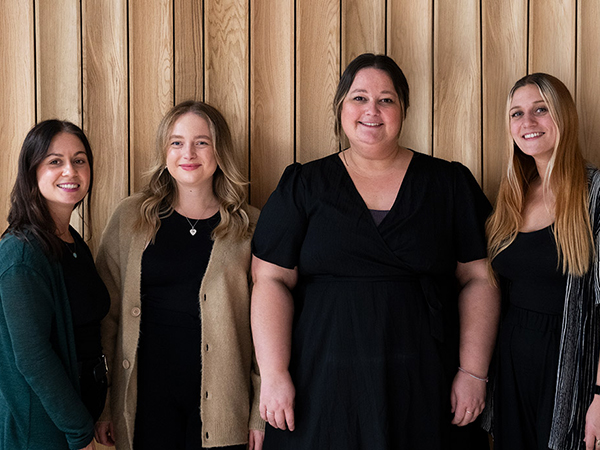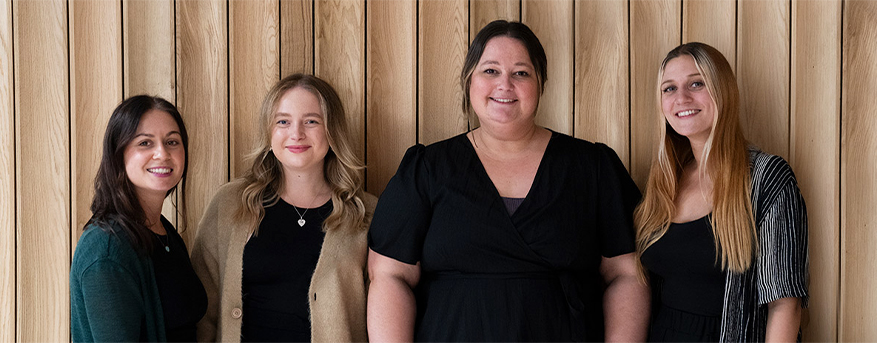Syria travel guide

Syria is resilient. Home of one of the oldest civilisations in the world, it continues to be spectacular, even in the face of the civil war that started in 2011, and in the aftermath of 2022’s devastating earthquake. The country is renowned for the hospitality of its people, the beauty of its cities, the pleasures of Levantine cuisine, and the wealth of its hundreds of archaeological sites – to which more discoveries are added all the time.


Syria’s story has many volumes – fitting for a country with one of the world’s oldest libraries. There have been some dark chapters in recent years, but the country is ready to turn the page.![]()

Its history looms large – to the north are enormous crusader castles, whilst, in its desert oasis, Palmyra, a city made rich by the Silk Road, still stands as a symbol of the country’s endurance. Here’s another: The Norias of Hama – a series of 17 medieval waterwheels, some over 17 metres tall, which lift water out of the Orontes River. It was on Syria’s rich plains that civilisations first started to farm. Modern droughts threaten to take that all away again: the fate of the nation keeps turning, but the country stands strong.
Read our Syria travel guide for more details.
Read our Syria travel guide for more details.
Syria is…
a country where every city has its own specialty dessert.
Syria isn’t…
destroyed by civil war.
Best time to visit Syria

Autumn brings fantastic harvests of lemons and walnuts, and Syria’s beautiful pomegranates – for refreshing juices and warming molasses.![]()

Because of the hot, dry desert climate, the best time to go to Syria is in the pleasant months of spring and autumn. In May, the landscape is still beautifully green before the summer heat. Summer is dry, with drought an increasing problem, and the hottest month, July, brings temperatures above 30°C to Damascus. In autumn, it cools. October is the start of the wetter months, and November is noticeably colder. You should also consider winter – it might be chilly in the mornings, especially in the mountains, but the weather is mild and you can do a Christmas tour.
Damascus Weather Chart
MIN °C
MAX °C
RAIN (mm)
JAN
0
10
107
FEB
1
11
86
MAR
3
15
73
APR
6
20
35
MAY
9
25
11
JUN
12
29
1
JUL
14
32
0
AUG
14
32
0
SEP
12
29
1
OCT
9
24
23
NOV
4
17
55
DEC
1
11
97
Syria tour, tailor made culture
Explore ancient sites and historic cities
From
US $1300 to US $2550
10 days
ex flights
Syria holiday, ancient wonders
Welcome to Syria, ancient and modern
From
€845 to €1850
7 days
ex flights
Syria Christmas tour, 7 days
Unique Christmas experience in an enchanting destination
From
US $1100
7 days
ex flights
Syria guided history and cultural tour
Ancient cities, crusader castles and the ruins of Palmyra
From
£2250
10 days
ex flights
Christmas in Syria tour
A magical Christmas celebration unlike any other
From
US $1400
10 days
ex flights
Contact Us

Call us for a chat about our holidays. We are happy to discuss your holiday and help in any way we can. No bots, queues or awful hold music.
01273 823 700
Call us until 6pm
Calling from outside the UK

Things to do in Syria…
Things not to do in Syria…
Syria travel advice
Eat well
“Syria has a very rich kitchen,” says Rami Nawaya from our partner Syrian Guides. A lot of his advice about visiting his home country revolves around the food.
Levantine cuisine is one of excess. Meals involve a flurry of mezzes – small plates – and every city is famous for a different dessert. “For example,” says Rami, “Damascus is famous for barazeq – a cookie made from semolina, with sugar and sesame.” Then there’s the mind-boggling number of ways to serve kibbeh, meat mince mixed with bulgar wheat. “It’s a really significant part of the Syrian kitchen,” says Rami, “We barbecue it, we fry it, we have 100 types!” The best accompaniment is pomegranate molasses, which is used on most dishes, “It’s on the table when you go to any restaurant. When you add it to shawarma it changes everything! Sorry, am I making you hungry?”
Levantine cuisine is one of excess. Meals involve a flurry of mezzes – small plates – and every city is famous for a different dessert. “For example,” says Rami, “Damascus is famous for barazeq – a cookie made from semolina, with sugar and sesame.” Then there’s the mind-boggling number of ways to serve kibbeh, meat mince mixed with bulgar wheat. “It’s a really significant part of the Syrian kitchen,” says Rami, “We barbecue it, we fry it, we have 100 types!” The best accompaniment is pomegranate molasses, which is used on most dishes, “It’s on the table when you go to any restaurant. When you add it to shawarma it changes everything! Sorry, am I making you hungry?”
Use a guide
“Having a guide will really enrich your experience,” says Rami, “They change everything.” Whilst having a guide is essential for visiting Syria, it is also a pleasure. Meeting people is one of the main draws of visiting the country, and is the best way to support ordinary communities with their continued difficulties, which extend to leaving: “Syrians need a visa to enter Lebanon and we have some difficulties with this so instead we meet our guests at the border,” says Rami, “We send them a driver who meet them in the airport or in their hotel and bring them all the way to Damascus.”
Is it safe?
You should always refer to your country’s government travel advice when going abroad. In the UK, this is the Foreign, Commonwealth & Development Office (FCDO), which is updated daily. Daily life in Syria – and the holidays that experience it – are a far cry from what is depicted in news headlines.
“When tourists come to Syria they are shocked by the reality of what they see,” says Rami “They are told that Syria is torn apart, Syria is devastated, Syria is destroyed, that the locals are lost and that they have no hope – they give the image that Syria is devastated and that it is a failure.
But when they come here, they see how lovely it is – how civilised it is, how friendly the people are. They see that the majority of Syria is safe, despite the economic hardship. They see how resilient we are – and how our resilience is the strongest thing. And they notice how safe the country is.”
“When tourists come to Syria they are shocked by the reality of what they see,” says Rami “They are told that Syria is torn apart, Syria is devastated, Syria is destroyed, that the locals are lost and that they have no hope – they give the image that Syria is devastated and that it is a failure.
But when they come here, they see how lovely it is – how civilised it is, how friendly the people are. They see that the majority of Syria is safe, despite the economic hardship. They see how resilient we are – and how our resilience is the strongest thing. And they notice how safe the country is.”














